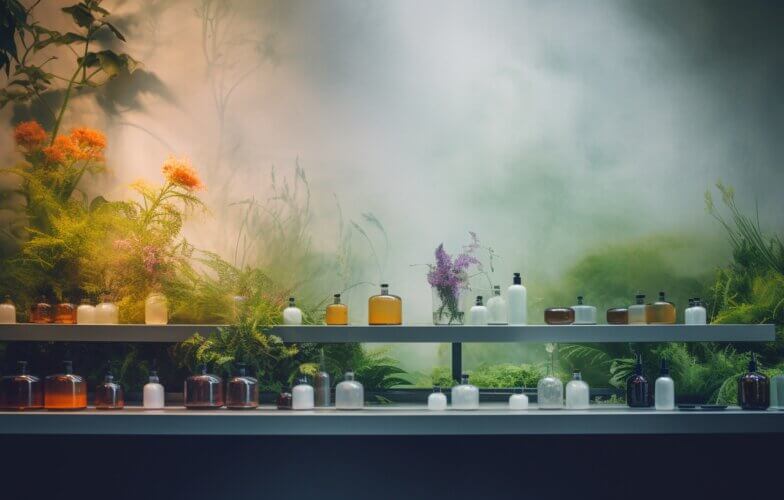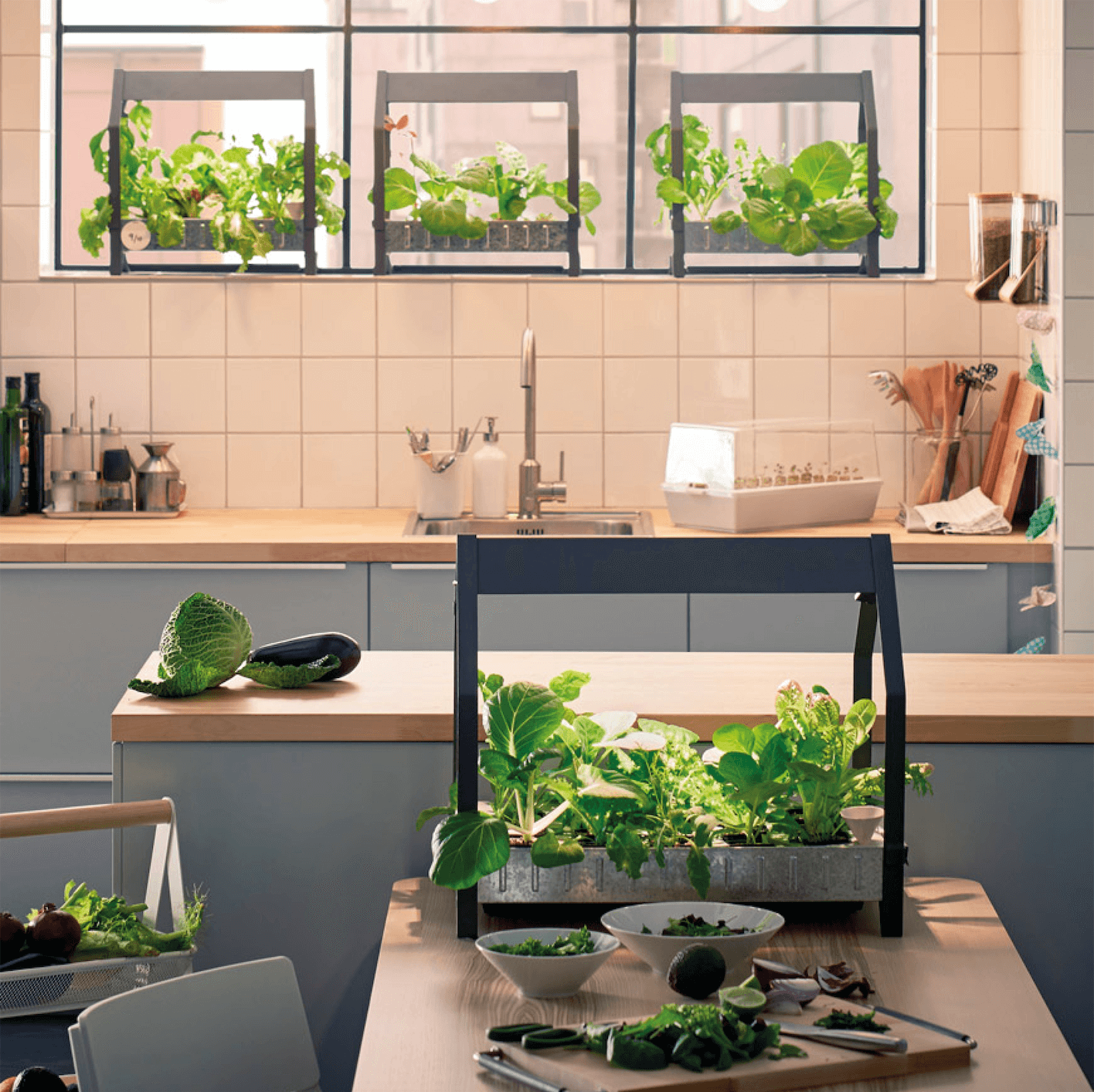
Micro-Gardening, the New Lifestyle Craze
DecodingsOver the last few years, there has been a big revival of interest in gardening and plants. Demand for such green-themed TV programs – e.g. the British show The Big Flower Fight, which is like a Top Chef for florists – is on the rise, especially in Scandinavia and the United States. In France, houseplants have been selling like hotcakes in the big metropolises, reflecting a mainstream trend in favor of biophilia, or re-connecting with nature. In addition, the vogue for micro-gardening bears witness to enduring changes in society as well as a growing consumer focus on well-being, the home and autonomy.
A soothing antidote to stress and anxiety, the indoor garden can be embellished with houseplants ordered online from DNVBs like The Sill, Bloomscape or Bergamotte, some of which offer subscriptions.
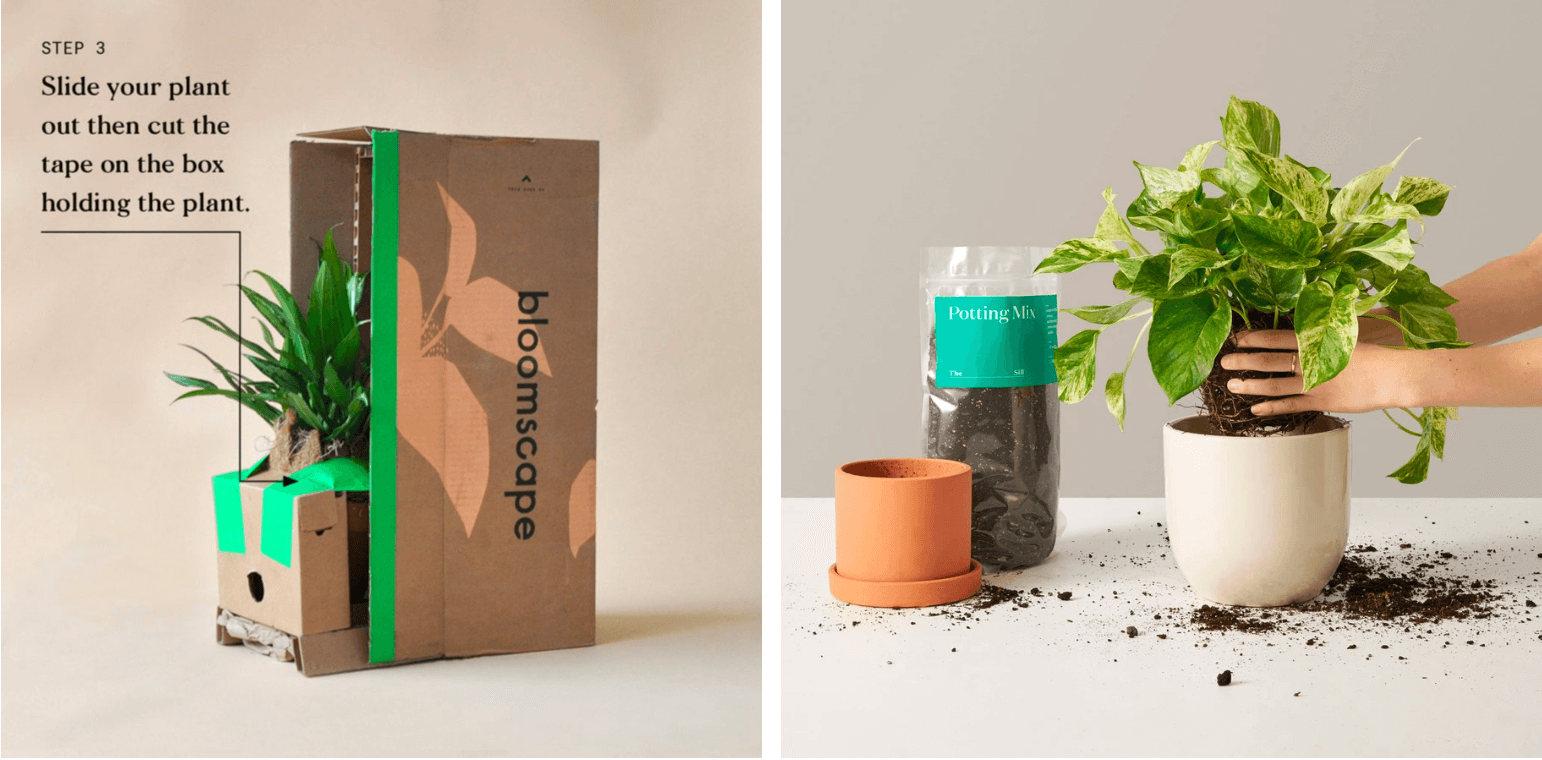
Plant parenthood
Since houseplants are a lot easier to take care of than a child or a pet, Millennials and Gen Zers are buying them like crazy. These are the first generations to postpone parenthood in order to remain free and flexible for longer. In the U.S., a national survey on gardening in 2016 showed that 80% of the six million first-time gardeners were in the 18 to 34 age group. The Covid-19 pandemic has simply intensified this movement. In a survey by AO.com, 62% of Millennials admitted that their green space was vital to their well-being during lockdown and 48% thought it was the best part of their home.
Some of these green-fingered young people are also adepts of the Cottagecore (a.k.a. Farmcore or Countrycore) internet aesthetic that romanticizes the rural life, perceiving it as a new form of self-care and slow living. But there are real benefits to be had: studies have shown that plants can improve the quality of interior air, increase productivity, reduce stress and even boost immunity whereas, on the other hand, the omnipresence of screens tends to give rise to feelings of anxiety.
A variety of digital solutions (e.g. Planta, Florish, Gardenia and Vera) are cropping up to help these “plant parents” care for their young sprouts. Springing up like mushrooms, smartphone apps now offer smart diagnosis features, watering reminders and instant access to expert advice.
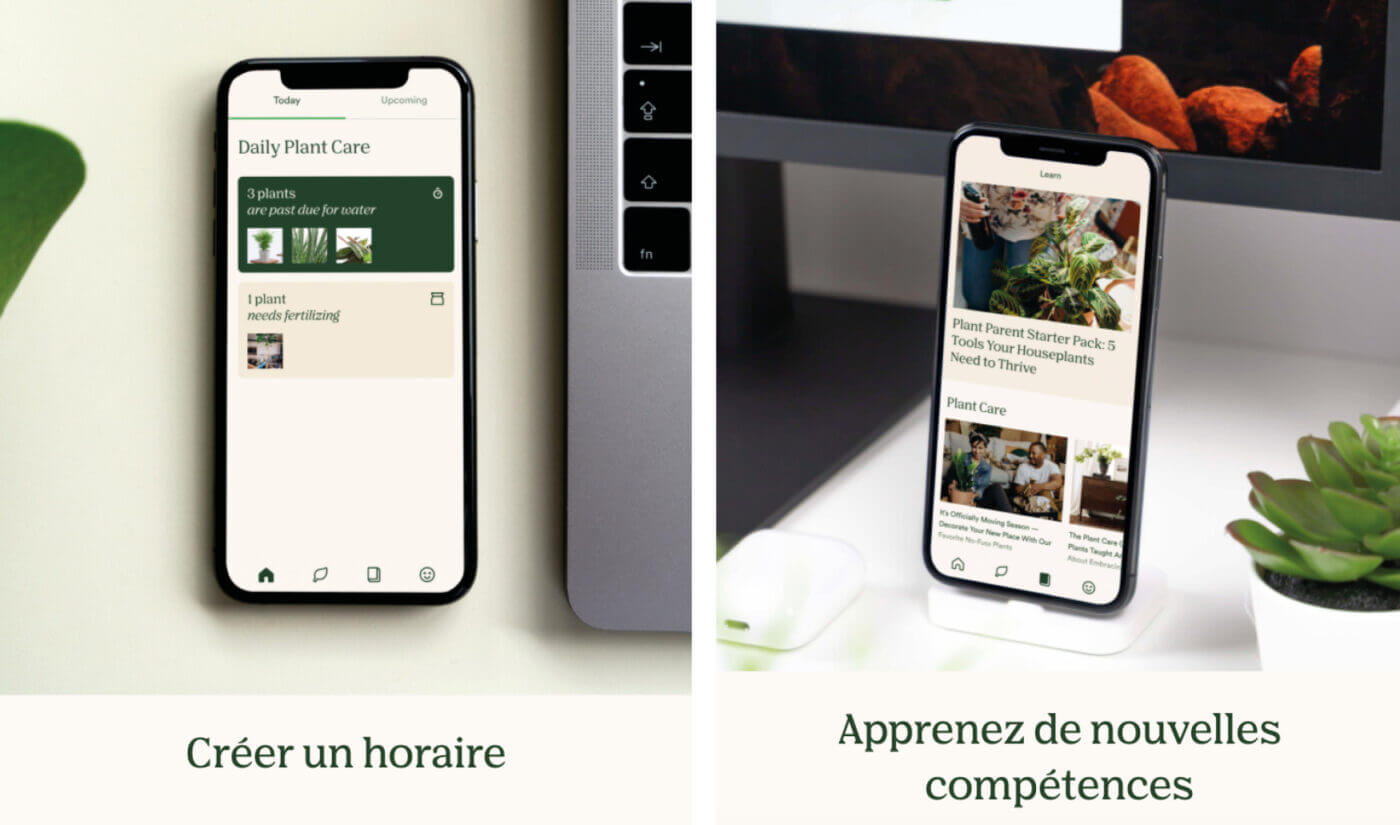
A step towards self-sufficiency
Generations Y and Z are not only fond of houseplants, but edible greens as well. On Pinterest, searches on the subject of growing micro-greens indoors saw an increase of 223% in 2020 over the previous year. New food categories have emerged, such as “veggimentals” or “ornamedibles”, i.e. ornamental flowers that look (and are) good enough to eat! This generation of vegetarians and vegans also delight in aromatic herbs and fresh vegetables. Catering to their tastes, Bloomscape has recently rolled out its “Edible Garden” section enabling them to buy potted mint, micro tomato, chamomile and hot pepper plants or easy-grow salad greens.
More and more city dwellers are seeking self-sufficiency and this phenomenon got a boost during lockdown in places where fears of a food shortage ran rampant. Consumers are looking for alternative means of achieving more food autonomy and want to have their own fresh produce close to hand. Formerly the prerogative of country life, green plants are now brightening up indoor spaces in city apartments.
The idea of creating urban micro-farms was already germinating at Ikea back in 2016 in response to consumer demand for healthier, more sustainable lifestyles. The furniture designer and manufacturer launched indoor gardening kits, like miniature greenhouses, “to help you propagate plants in any space – and keep your garden growing across all seasons.” By encouraging domestic hydroponic practices, the brand took a step towards a more sustainable vision of homeware.
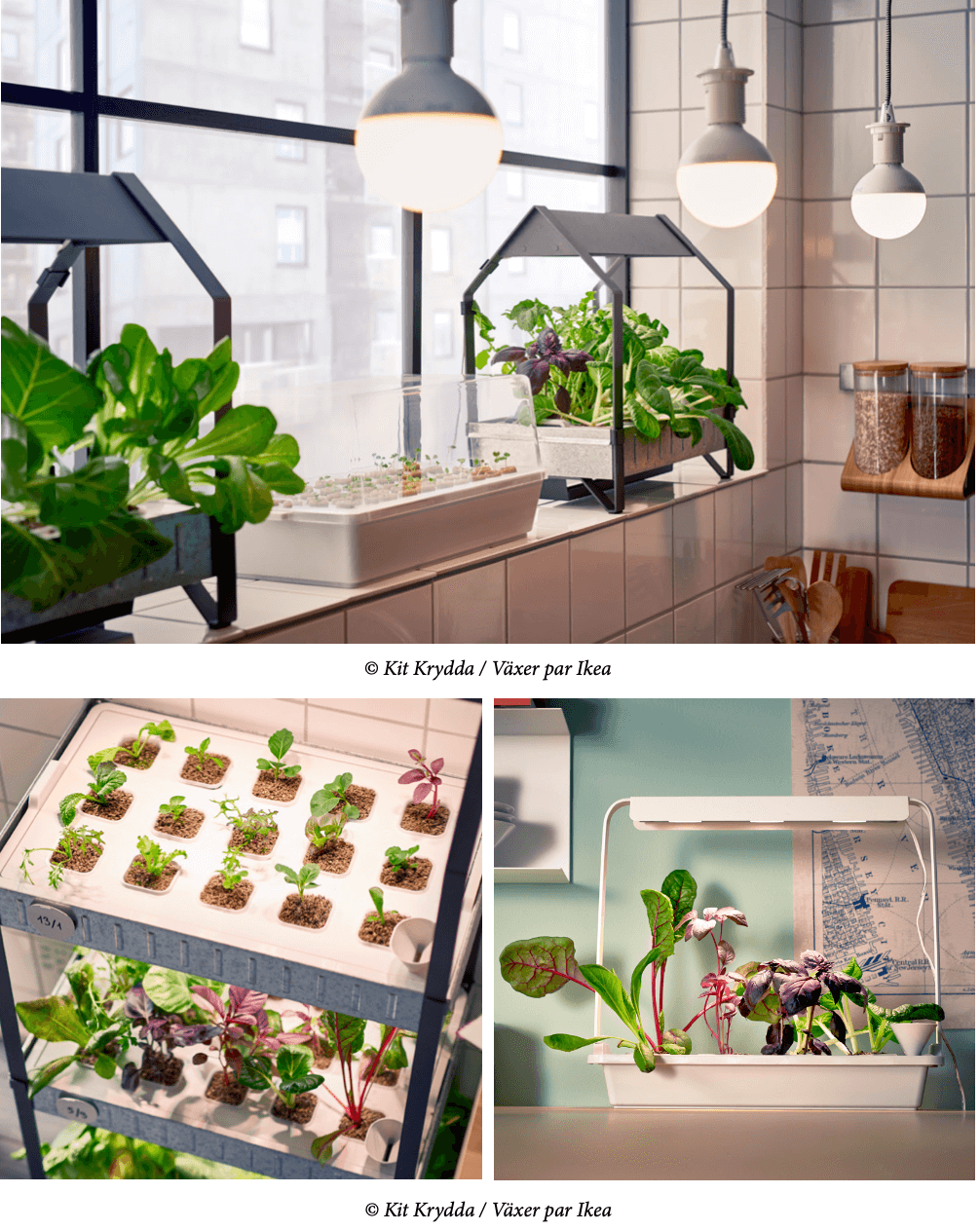
Since then, the market has seen a proliferation of smart, autonomous hydroponic garden solutions sporting edgy designs (e.g. Plantario, PICO, Greenox and Miracle-Gro). Suitable for beginners, these in-home garden systems allow city dwellers to grow plants without having to worry about lighting or watering. The AeroGarden Bounty system can even be voice-controlled by Amazon’s virtual assistant Alexa, which renders the biophilia experience more entertaining and desirable.
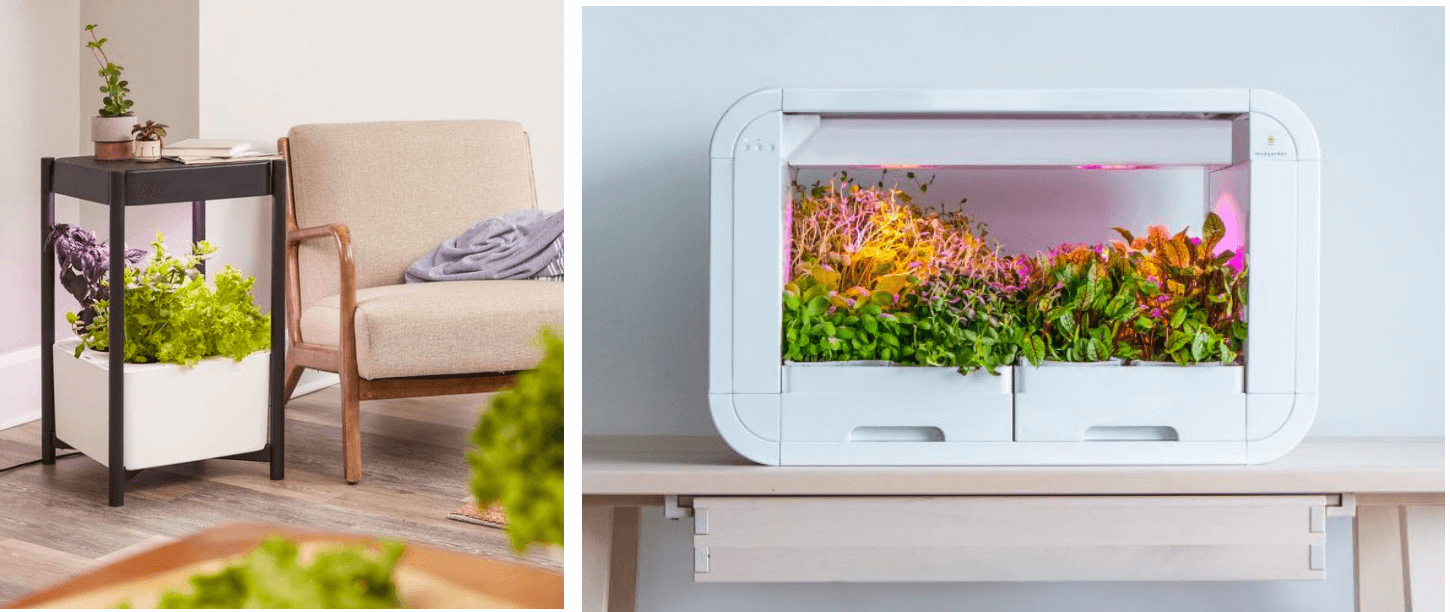
Taking a more experimental approach, the architecture, design and research firm ecoLogicStudio has developed an algae garden kit called BioBombola, developed during lockdown to provide a sustainable source of edible vegetable proteins (Spirulina). The photobioreactor “absorbs the equivalent of two young trees in CO2 while producing the same amount of oxygen as seven indoor plants.” while fostering a fulfilling daily interaction with nature”.
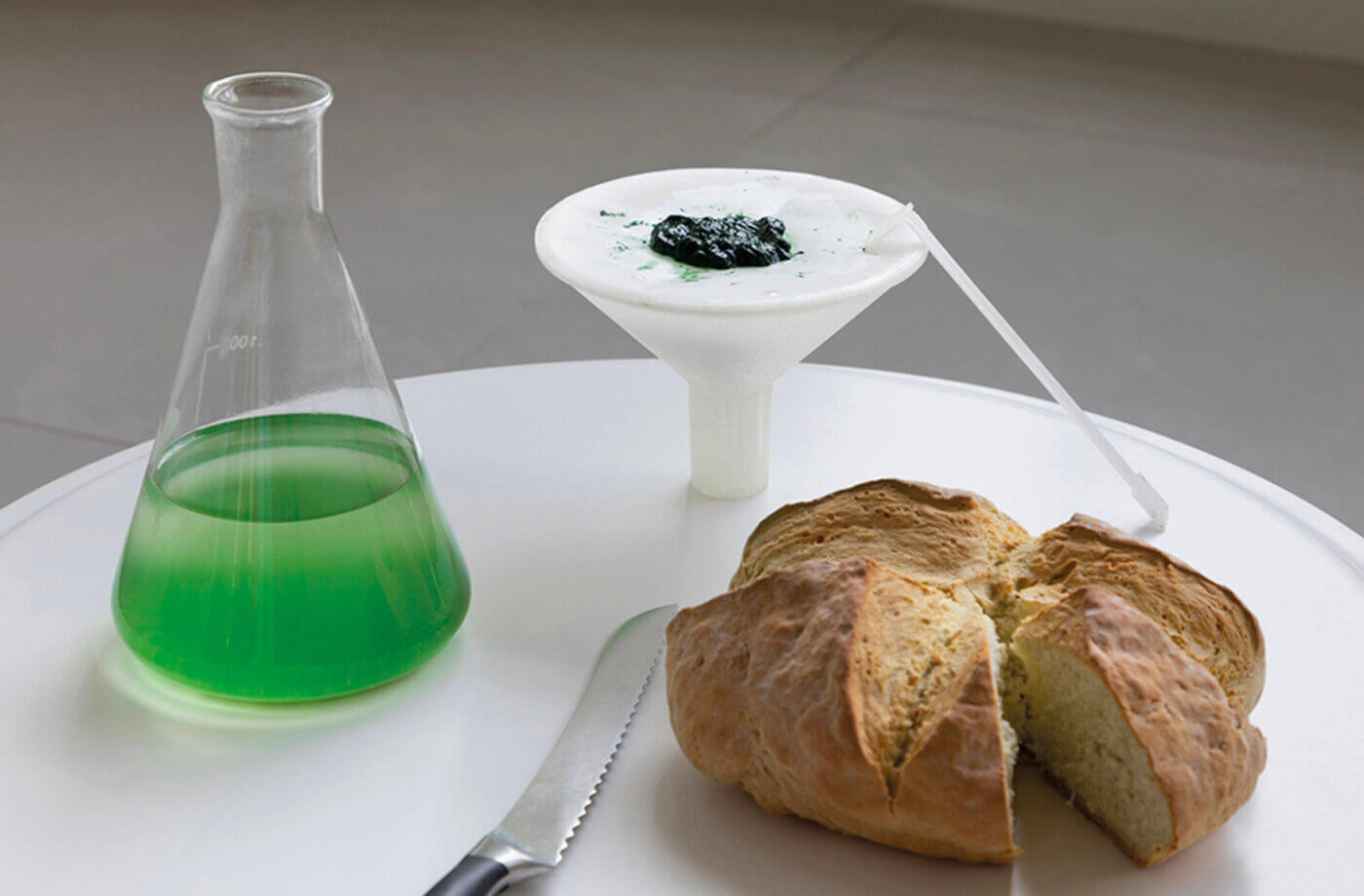
This initiative to bring hi-tech cultivation of micro-greens to cities also has other health benefits,according to the founders of ecoLogicStudio, Claudia Pasquero and Marco Poletto: “If we, collectively, transform air pollutants into highly nutritious aliments, there will be fewer opportunities for viruses to exploit unsustainable food supply chains and for polluted atmospheres to reach and attach to us.”

